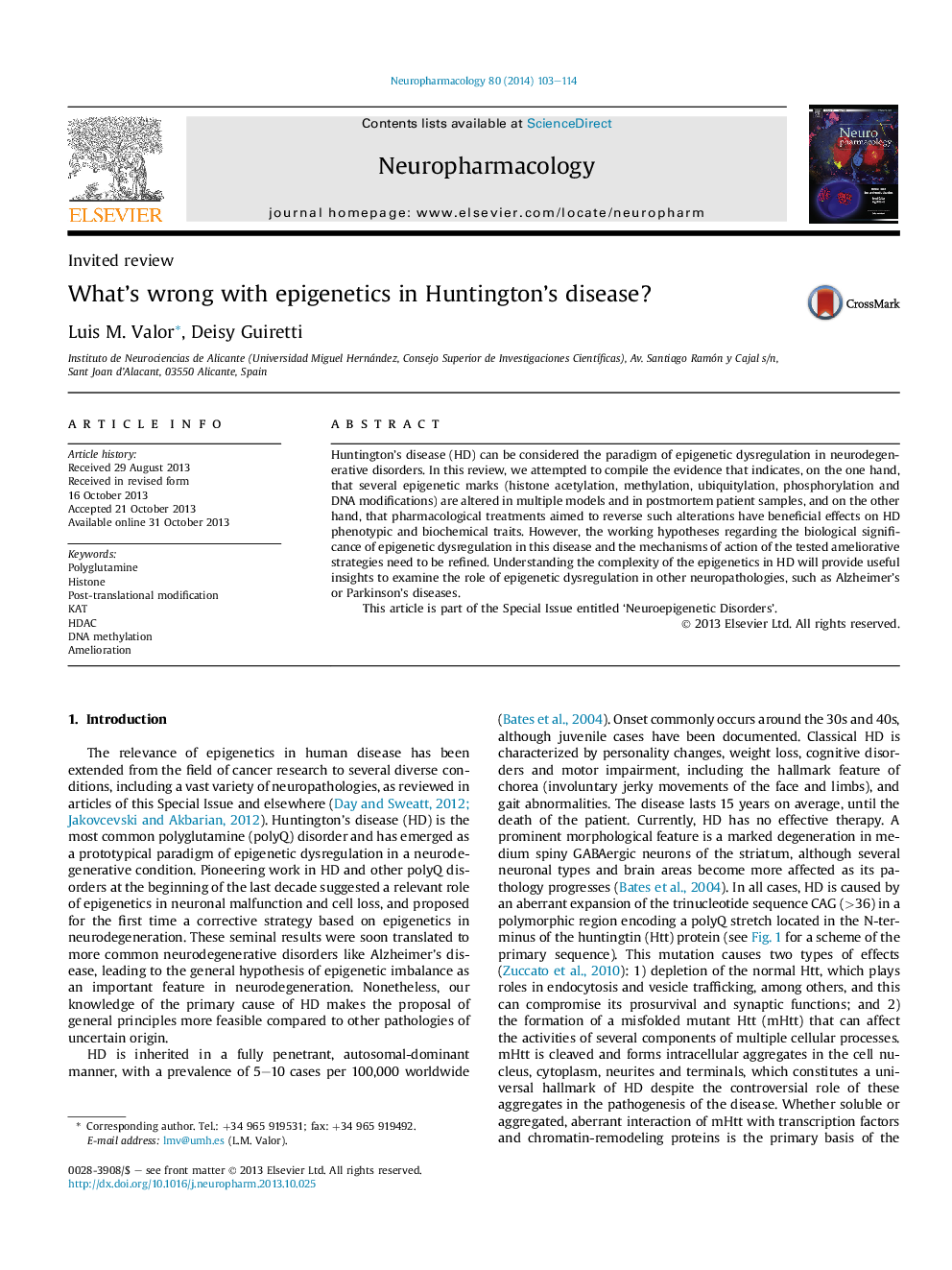| Article ID | Journal | Published Year | Pages | File Type |
|---|---|---|---|---|
| 2493221 | Neuropharmacology | 2014 | 12 Pages |
•HD is a paradigm of altered epigenetics in neurodegenerative disorders.•Epigenetic-based therapies are beneficial in HD models.•The relationship between epigenetic and transcriptional dysregulation is unclear.•Additional factors and processes should be taken in consideration.
Huntington's disease (HD) can be considered the paradigm of epigenetic dysregulation in neurodegenerative disorders. In this review, we attempted to compile the evidence that indicates, on the one hand, that several epigenetic marks (histone acetylation, methylation, ubiquitylation, phosphorylation and DNA modifications) are altered in multiple models and in postmortem patient samples, and on the other hand, that pharmacological treatments aimed to reverse such alterations have beneficial effects on HD phenotypic and biochemical traits. However, the working hypotheses regarding the biological significance of epigenetic dysregulation in this disease and the mechanisms of action of the tested ameliorative strategies need to be refined. Understanding the complexity of the epigenetics in HD will provide useful insights to examine the role of epigenetic dysregulation in other neuropathologies, such as Alzheimer's or Parkinson's diseases.This article is part of the Special Issue entitled ‘Neuroepigenetic Disorders’.
